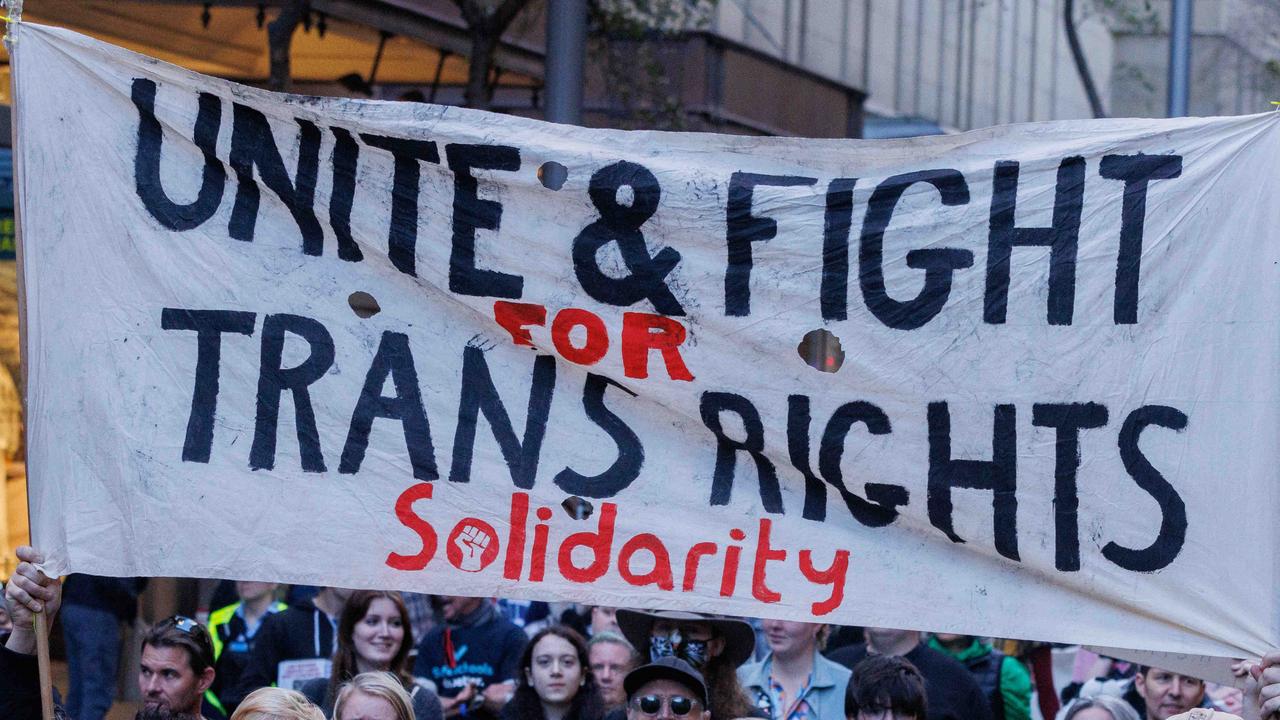Opinion: Why we should be praising dads more
DADS are heaped with praise for things mums do all the time without anyone noticing. But that’s the way it should be. We should praise men more.

OPINION
THE morning after I gave birth people came to praise my husband.
It wasn’t a bad labour but it was a long one — nearly 23 hours of crying, vomiting, pleading, and pushing. At the end of it all, I was a wreck. Physically and emotionally obliterated.
But by the next morning, despite lack of any actual sleep, I was ready for visitors. I was ready for the hearty pat on the back I thoroughly deserved and for people to ooh and ah over the beautiful baby I’d just produced.
Except it didn’t happen quite like that.
Instead my room was inundated with a steady stream of midwives who wanted to meet my husband. He had achieved overnight movie star status at the Royal Women’s Hospital for being such a magnificent birthing partner.
Apparently his performance as Actor in a Supporting Role had outshone mine as Actress Bringing Actual New Life Into the World.
Now don’t get me wrong, my husband did a great job during labour and I’m grateful for it. But let’s also keep things in perspective here. He held my hand, spoke reassuring words and didn’t faint or leave the room when things got a bit hairy. I’m pretty sure he moved the car at some point and he didn’t lose any of our stuff. He deserves some props, for sure, but I grew and birthed a human being. Why was he the hero?

This pattern isn’t confined to the birthing suite. Men are regularly praised for doing the bare minimum of emotional, caring and domestic labour, whereas women who carry the bulk of the load are barely meeting expectations.
Stay-at-home-fathers are treated like Greek Gods at the playground, fussed over by women whose partners would never contemplate the same. Dads who leave work early to take their daughters to ballet are adorable. Women whose male partners cook dinner a few nights a week are ‘just so lucky!’ to have the help.
Men who work part-time, change nappies, remember birthdays, organise play dates, cook dinner, vacuum the living room, or even just unpack the dishwasher are praised for being remarkable. Whereas women do this stuff every single date without notice.
More and more I’m hearing girlfriends complain about this, sick of having to hand out participation ribbons to a husband who cleaned out the fridge for the first time in his life.
But as absolutely maddening as it is, I think the praise is warranted. And I think we have to keep giving it. I would even go so far as to say that as women, as feminists, we have a responsibility to keep praising men for doing the unremarkable.
Take a deep breath and stick with me here, friends, because there are two reasons for this:
1. BEING THE FIRST IS HARD AND IT IS WORTHY OF PRAISE
When women first worked in factories during wartime, taking up the jobs of men who were no longer there to fill them, they weren’t doing specialist work. They were doing what the blokes already did. What made them extraordinary was that they were pushing against entrenched social and cultural norms that said women couldn’t and shouldn’t fill those roles. They were the first and the first is, in and of itself, remarkable.
And sadly when it comes to men participating equally in the domestic and family sphere, we’re still not far beyond achieving ‘firsts’. Despite overexcited media coverage, homes where dad stays at home full time while the other parent goes to work in only four per cent of Australian families.
According to the most recent census, men do less than five hours a week of housework on average, for women it’s between five and 14 hours. Even blokes who are in their twenties and thirties today, are unlikely to have grown up in households where their parents divided housework or childcare equally.
I don’t say that as an excuse but by way of explanation. Most men haven’t had equal parenting or housekeeping modelled for them as children.
2. IF WE PRAISE THEM, MORE WILL DO IT
The second reason we need praise men who step up in the home is because we have to communicate that this work is valuable. We live in a patriarchal culture that still assumes things men do are more inherently valuable than things that women do.
Praising men for taking equal care of children, particularly babies, is critical because it helps improve the status of that activity. By praising it, we make it something worthy of praise — and it is. Caring for children is both difficult and important work, it just hasn’t been recognised accordingly in the past.
Academic Anne Marie Slaughter who has written extensively on this subject puts it like this: “The answer, for both women and men, is to make clear that parenting is just as hard and important as an income-generating profession — and to allow men and women to be in charge equally in whatever sphere they are in.”
There was a major incentive for women to enter the paid workforce; it was interesting, stimulating and valuable. For men to exit the paid workforce, we have to make child rearing and home-making roles similarly attractive propositions.
So while it may seem tedious and unfair to praise — or see a bloke praised — for doing what women consider par for the course, I think we have to suck it up.
We have to suck it up and commend the blokes anyway. We have to remind ourselves that blokes are receiving these compliments not because they are especially good at cooking or caring for children or buying a birthday present but because they are unusual.
And the only way to make the blokes that do this stuff no longer unusual is by making that behaviour desirable and valuable for the blokes that don’t.
Jamila Rizvi is writer, radio presenter and news.com.au columnist. Her first book, Not Just Lucky is now available for pre-sale. You can also follow her on Facebook and Twitter.




